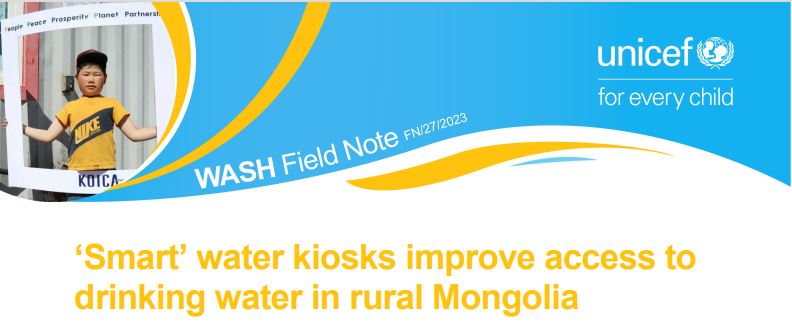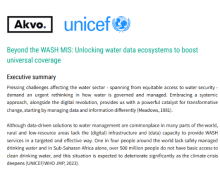Field Note: ‘Smart’ water kiosks improve access to drinking water in rural Mongolia

In Mongolia, access to safely managed drinking water has increased nationally, but access in rural, periurban, and low-income locations remains low. Climate change, limited and declining freshwater sources, deforestation, and pollution are degrading water quantity and quality. To address the situation, UNICEF is supporting WASH facilities that are sustainable for local communities under the KOICA-funded project “Community-Based Climate Resilient Water, Sanitation, and Hygiene Interventions” among others, targeting three provinces (Bayankhongor, Gobi-Altai, and Zavkhan). UNICEF supported two smart water kiosks in two sub-provinces (Yesunbulag and Khukhmorit) in Gobi-Altai province, improving services from a Basic level to ‘Basic +2’1, meaning a Basic service level with 2 of the 3 elements of Safely managed drinking water servise (improved source that is free from contamination and available when needed). As a result of UNICEF’s work, the local government allocated its own funds to upgrade an additional 20 water kiosks to provide ‘basic +2’ services for the rural communities in Mongolia




